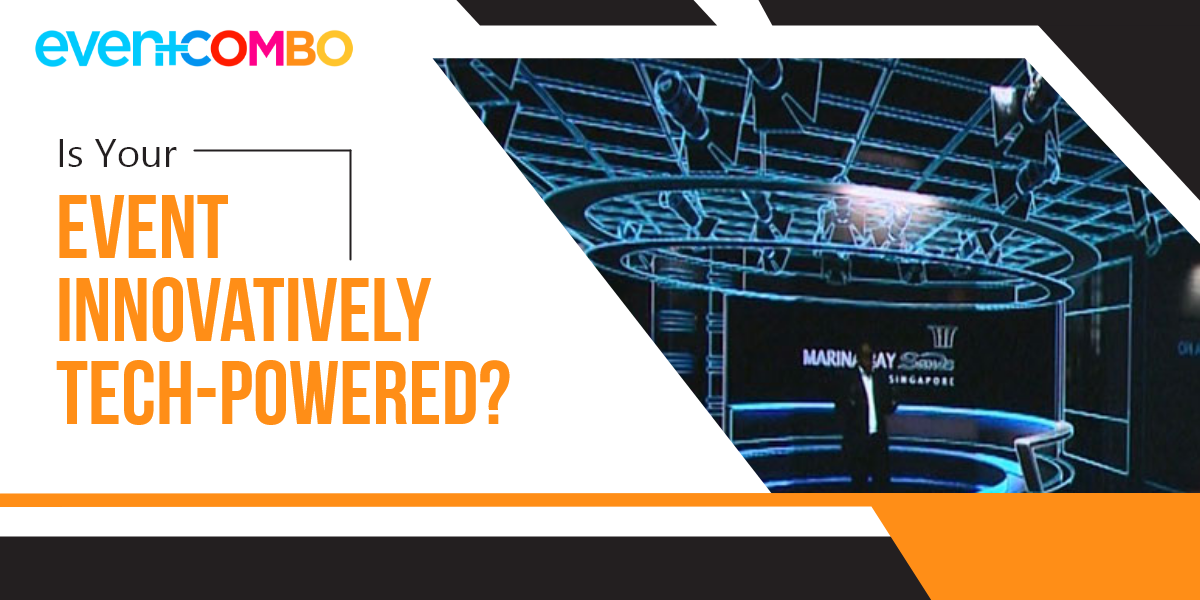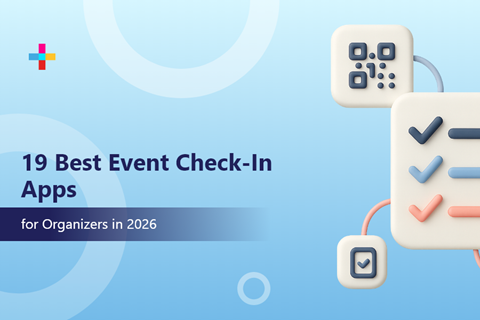

Technology has been a crucial part of events for a long time. Starting with a wired keypad system for a one-day conference, PowerPoints for effective presentations to voting technology that showed results in real-time, event tech has come a long way.
However, today, the business environment is more competitive than ever. It demands the usage of advanced technology that not only streamlines event processes but also facilitates exceptional attendee experiences. Embracing innovative solutions is the only way for event planners to stand out from the crowd and gain a competitive edge.
In today's digital age, you need experience-enhancing event technology that delivers personalized experiences. Be it about creating a personal event agenda or scheduling networking meetings, attendees feel more at ease when they have plenty of options to choose from. This is achieved through modern technologies.
Keep reading as we explain the technologies that have become an absolute necessity for event planners and organizers today.
Importance of Technology in Events
From its inception, planning and organizing events have been one of the most difficult tasks to tackle. It involves juggling various activities like venue selection, coordinating logistics, marketing the event, and ensuring that attendees stay well-engaged throughout.
But with the rise of modern event tech, planners can get a respite from this challenging process.
Cutting-edge technologies help event planners manage everything from start to finish. From attendee lists and budgets to vendor contracts and tracking attendees, they make event execution seamless and facilitate better collaboration, minimizing the risk of errors. In case of ticketing, registration, marketing, and analytics, they make it easy for organizers to plan various aspects of their events.
Additionally, Artificial Intelligence (AI) powered tools enable organizers to gain useful insights about attendee behaviors and provide personalized experiences. For instance, planners can organize seating layouts taking into account attendee preferences, traffic patterns, and prior data.
By automating laborious tasks that can possibly go wrong, event management tools save time and allow organizers to deliver memorable experiences.
Key Event Technologies for 2024
Here are the latest tools that’ll help you level up your next event in 2024.
1. Event Registration Platforms
Modern event registration platforms are equipped with robust features to streamline the registration and attendee management process. Functionalities like event website builder, email ticketing, social media integrations, online payment methods, and email marketing tools simplify a lot of tasks and contribute to a smooth experience.
Today, a top-performing event registration tool also integrates with your CRM or email marketing platforms. Further, many advanced tools help you forge an event experience that keeps lingering in the minds of attendees. They have features to create an interactive process, incorporate gamification, and integrate social media technology to maximize impact.
2. Hybrid Event Technology
Hybrid event technology bridges physical and virtual audiences, fostering inclusivity and extending the reach of the event. It offers flexibility, enabling attendees to engage from anywhere in the world. A cutting-edge tech stack can amplify engagement in hybrid events through features like live polling, chat, and virtual networking, regardless of location.
Advanced features such as multi-camera setups and customizable virtual environments can enhance the experience further, ensuring everyone, regardless of their participation mode, feels included. Therefore, embracing hybrid event technology is absolutely essential for navigating modern event landscapes in 2024.
3. Event Apps
Today, event apps have made the planning process much easier. They help deliver amazing experiences to attendees, while making the work of organizers seamless. For example, an app for event organizers has features like QR code scanning, automated check-in, live tracking, and more, which ensures that organizers can manage every aspect of their event perfectly.
On the other hand, an event app for attendees allows them to stay connected before, during, and after the event. The ability to send real-time updates, create polls and surveys, showcase speakers and sponsors, and customize the app with brand elements delivers an impactful experience to attendees.
Exhibitors can improve their ROI with an easy-to-use lead retrieval app. This tool provides them with real-time data from the event floor. With information like the number of attendees visiting their booth, their preferences, and features for engaging and tracking leads at their fingertips, exhibitors can fine-tune their strategies and make the most of the event.
4. Advanced Networking Solutions
Sparking meaningful connections among attendees is a crucial goal of any event. But event networking doesn't need to be a manually driven activity. Event tech focused on networking ensures that your attendees discover the right people and communities to connect with, effortlessly.
Here again, AI plays a dominant role. A comprehensive event management platform allows organizers to match attendees based on their preferences, interests, and behaviors. Driven by an AI-based match-making system, it helps forge meaningful connections and boost engagement levels without organizers needing to resort to manual processes.
Event tech for networking also features many other ways to connect people. These include branded rooms where attendees can join in for a conversation or video meeting tables branded with sponsor logos. The option to browse attendee list, send messages, and book 1:1 meetings from anywhere, anytime further creates a truly personalized networking experience.
5. Event Data and Analytics
To create memorable event experiences, the importance of data cannot be denied. Remember that with rising competition in the events landscape, a one-size-fits-all method of event planning is of no use. The secret to crafting a unique experience, whether virtual, in-person, or hybrid is to use data for personalization.
Event analytics glean meaningful insights from user behavior. They assess attendee data, engagement metrics, social media interactions, and more. The insights allow event organizers to make decisions that improve event planning and marketing processes.
Today, organizers use different event analytics tools to discover attendees' interests, uncover the best marketing channels, and measure event success. They enable tracking and measuring KPIs like attendee satisfaction, revenue generated, and the event's overall impact. Put simply, event analytics and data tools help in identifying the strengths and weaknesses of events, making it easy to refine what organizers are offering.
Final Words
Event technology that can fuel different types and sizes of events has become crucial today. Many new tools and trends are shaping the event industry with the potential to revolutionize how you plan, execute, and experience events. From real-time communication, higher attendee satisfaction, and the ability to design improved events for better results, they are designed to be your aid in every stage of planning and organizing events. No matter what kind of experience you wish to deliver, there’s a tool for that.
Are you looking to simplify your event planning process? Let Eventcombo help you with the right tech stack. Explore today - https://bit.ly/498PjBV

Professional certifications for event planners do more than provide a solid foundation in the field; they offer valuable exposure to the dynamic world of event planning and insights from prominent industry experts.

Choosing the right event management platform is vital for event professionals navigating the growing demand for in person , virtual, and hybrid events. Modern planners need solutions that offer robust features,...

Attendees don't notice good check-in. They only notice bad check-in. And planners know check-in is the first moment where their behind-the-scenes work gets exposed.